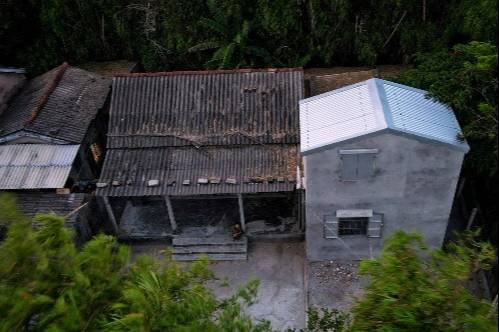This is the goal of the Project "Enhancing resilience to climate change impacts for vulnerable coastal communities in Viet Nam". The project, implemented from 2017 to 2024 with a total budget of 42 million USD, funded by the Green Climate Fund (GCF) and counterpart funds from Vietnam, has achieved positive results in enhancing coastal communities' resilience to climate change's impacts.
The program is implemented in 7 vulnerable coastal provinces, including Nam Dinh, Thanh Hoa, Quang Binh, Thua Thien Hue, Quang Nam, Quang Ngai, and Ca Mau, with the primary objective of protecting and supporting vulnerable communities through integrated solutions such as building safe houses, restoring mangrove forests and strengthening disaster risk warning information systems.
After over 7 years of implementation, the project has built 4,966 safe houses, providing solid shelter for more than 25,000 people living in areas frequently affected by storms and floods. These houses help protect people's lives and property and become an integrated model into the National Target Program for Sustainable Poverty Reduction.
The project has also regenerated 4,028 hectares of mangrove forests, helping to protect coastal communities from the impacts of high tides and storms.

In addition, these mangrove forests also play an essential role in absorbing more than 1.1 million tons of CO2, contributing to Vietnam's commitment to reducing greenhouse gas emissions. The project also supports the development of sustainable livelihood models, such as beekeeping in Thanh Hoa, which helps people increase their income and participate in environmental protection.
In disaster risk management, the project has deployed an early warning system in 24 high-risk communes and provided training to more than 62,000 officials and people, of whom nearly 50% are women.